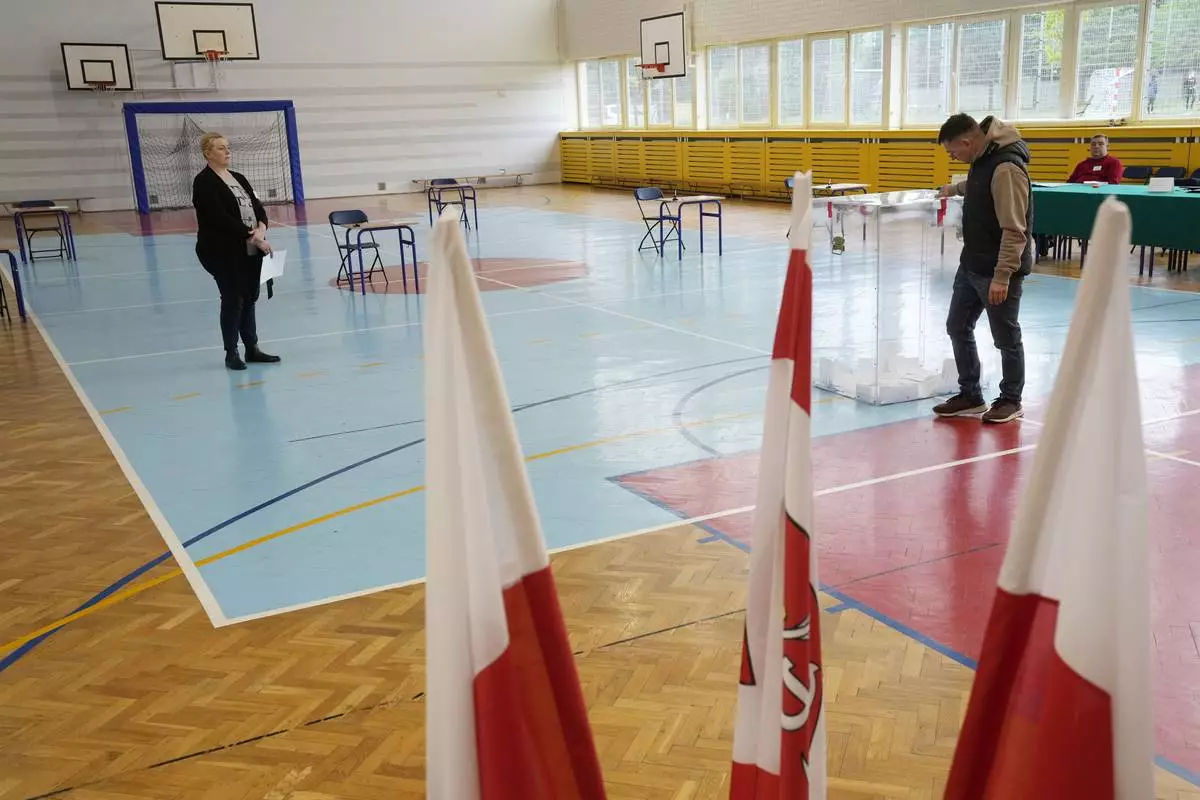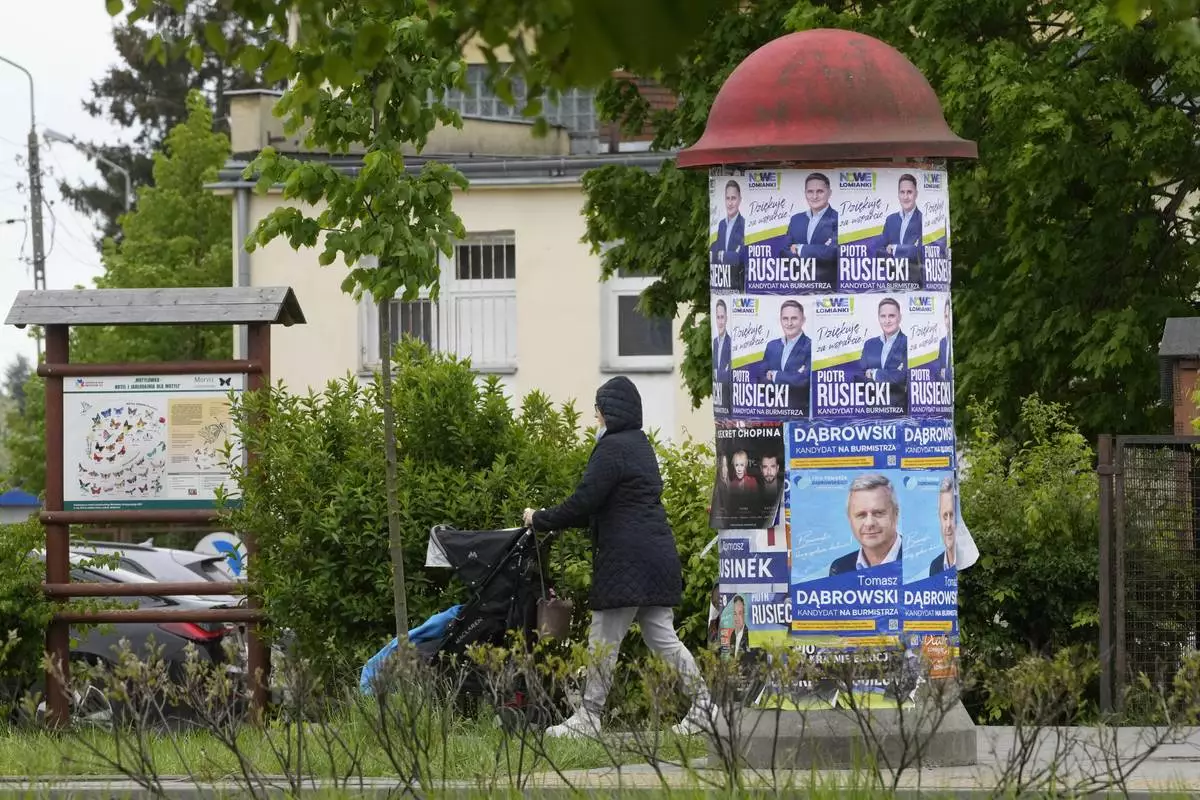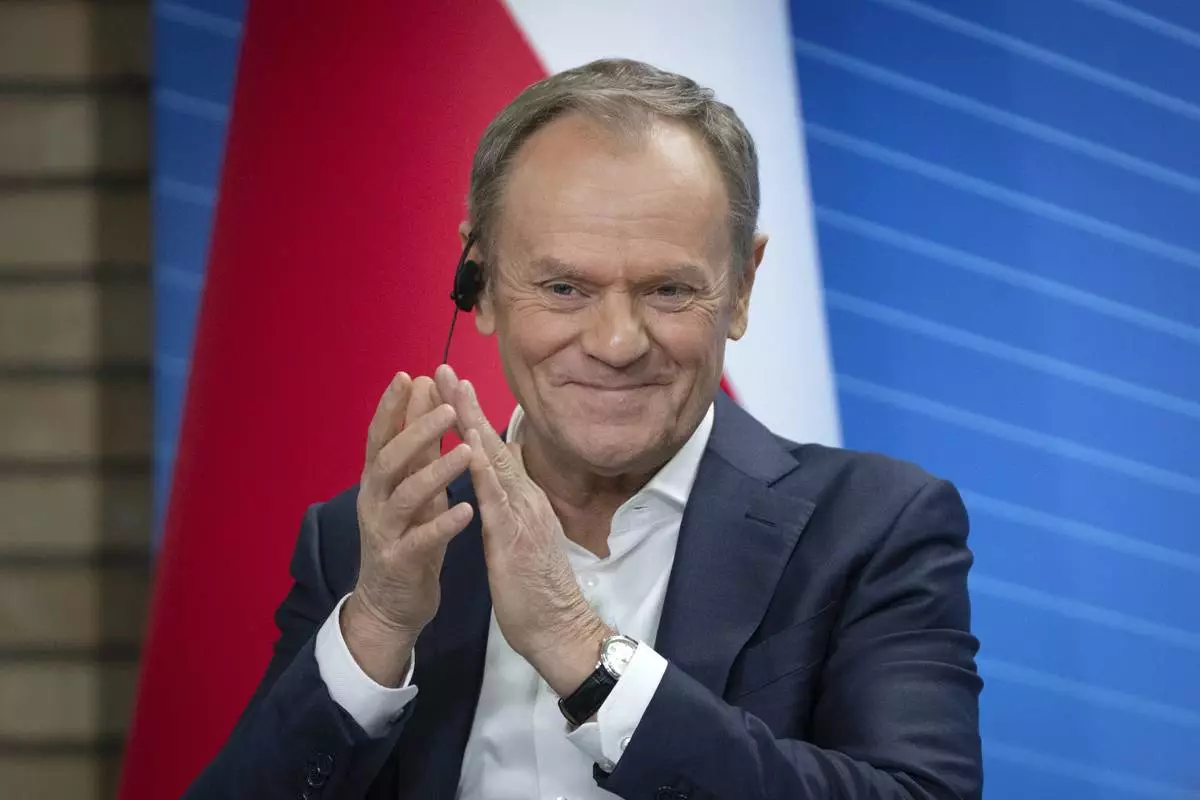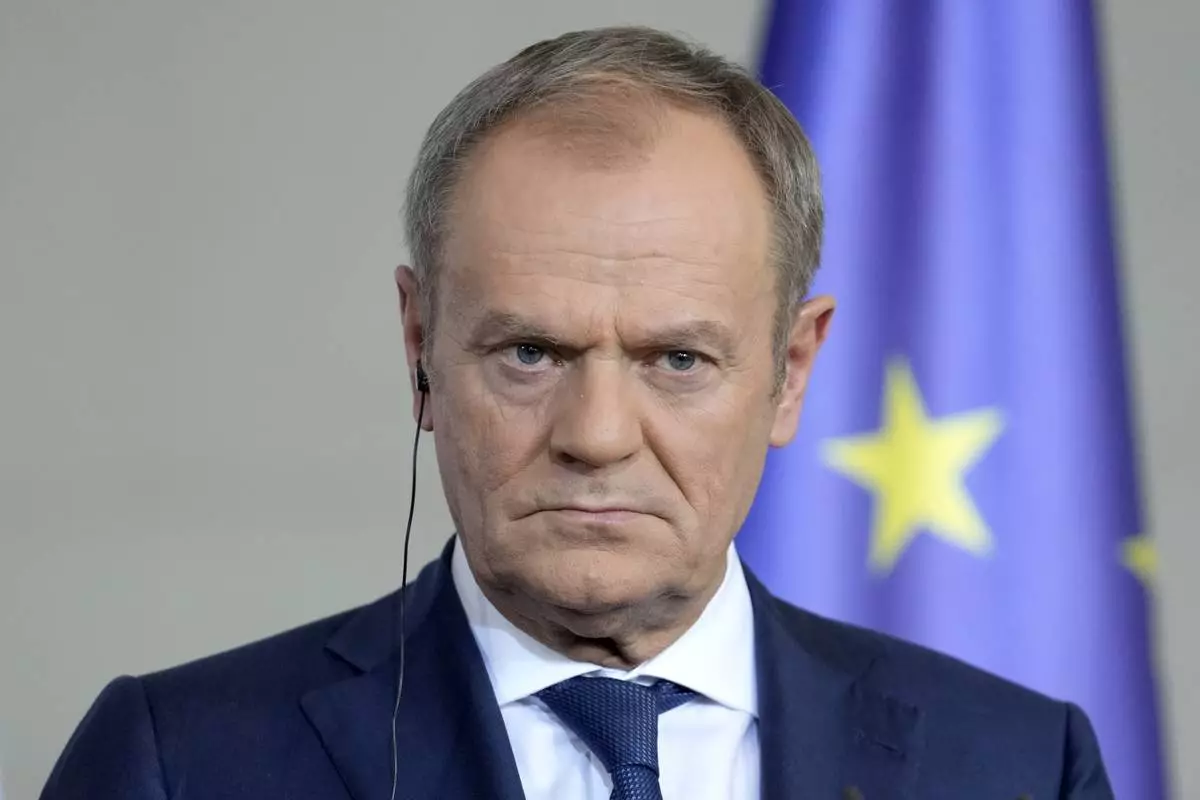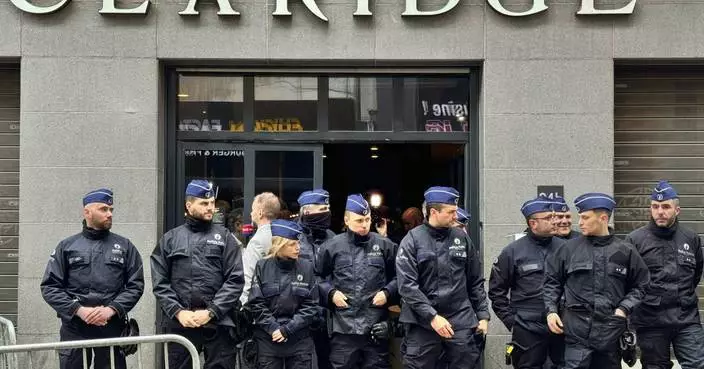Theresa May has joined the ranks of Conservative prime ministers whose time in office has been overwhelmed — and cut short — by the issue of Europe.
Ever since Edward Heath took the U.K. into what was then the European Economic Community in 1973, the Conservative Party has been anguished by how close the country's ties should be with the continent.
On Friday, May announced she, too, would resign as party leader, effective June 7, because of her inability to deliver on a referendum to leave the European Union.
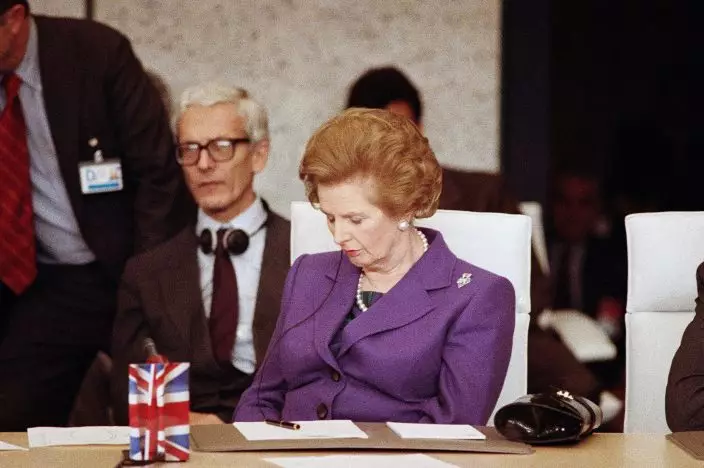
FILE - In this Thursday, Nov. 20, 1990 file photo, British Prime Minister Margaret Thatcher dozes off for a few minutes while attending the Conference on Security and Cooperation in Europe. A few days later, Thatcher resigned after 11 years as prime minister, largely because of her strident views on future European integration. On Friday, May 24, 2019 announced she would resign as party leader, effective June 7, because of her inability to deliver on a referendum to leave the European Union. May has joined the ranks of Conservative prime ministers whose time in office has been overwhelmed — and cut short — by the issue of Europe. (AP PhotoLionel Cironneau, File)
Here's a look at what happened to Heath and his successors.
EDWARD HEATH, prime minister 1970-74
On taking office, Heath made membership of the EEC a key objective. He was fortunate to have in Georges Pompidou a French president more amenable to the prospect of Britain joining the bloc than his predecessor Charles de Gaulle, who twice in the 1960s vetoed British membership.
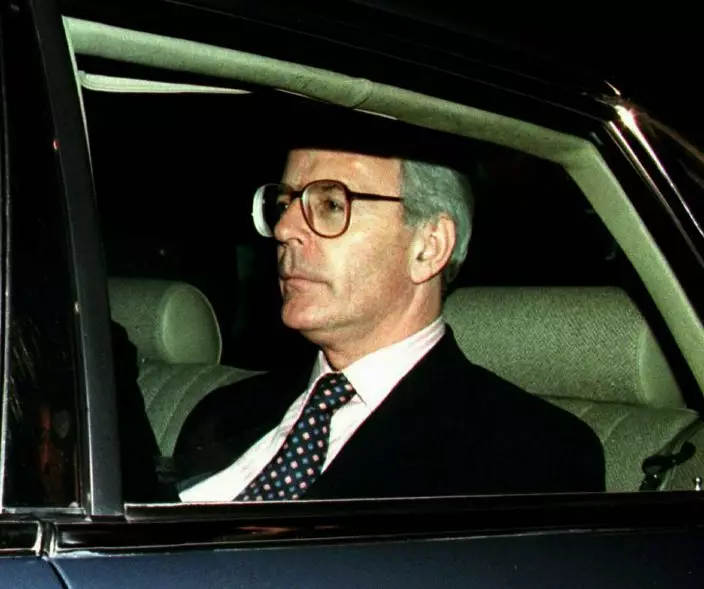
FILE - In this Friday May 2, 1997 file photo, British Prime Minister John Major drives away after retaining his parliamentary seat in the general election that his Conservative Party lost. On Friday, May 24, 2019 announced she would resign as party leader, effective June 7, because of her inability to deliver on a referendum to leave the European Union. May has joined the ranks of Conservative prime ministers whose time in office has been overwhelmed — and cut short — by the issue of Europe. (AP PhotoLynne Sladky, File)
In October 1971, the House of Commons voted 356-244 to join the EEC in 1973, with a sizeable chunk of Heath's own party voting against the measure. Heath and the Conservatives were voted out of office a year later after an economic crisis, and his passionate pro-European stance weighed against him when Margaret Thatcher challenged him for the party's leadership in 1975.
MARGARET THATCHER, prime minister 1979-90
Thatcher was a keen backer of the EEC at first; she even wore a sweater with the flags of the member countries during Britain's first referendum on membership of the bloc in 1975. But her 11 years in Downing Street were marked by growing opposition to Europe.
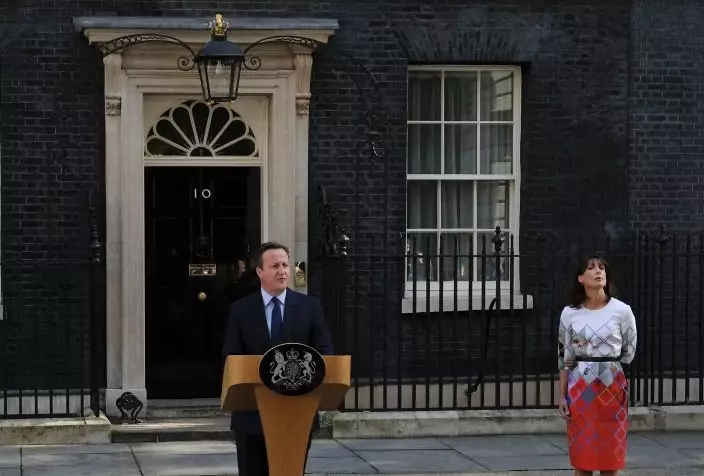
FILE - In this Friday, June 24, 2016 file photo, British Prime Minister David Cameron speaks outside 10 Downing Street, London as his wife Samantha looks on. Cameron announced his plan to step down, a day after Britain voted to leave the European Union in a referendum. On Friday, May 24, 2019 announced she would resign as party leader, effective June 7, because of her inability to deliver on a referendum to leave the European Union. May has joined the ranks of Conservative prime ministers whose time in office has been overwhelmed — and cut short — by the issue of Europe. (AP PhotoAlastair Grant, File)
Though her government backed the creation of the single European market in the mid-1980s, she became increasingly hostile to the move to further integrate European countries.
The appointment of French socialist Jacques Delors to head the executive European Commission added fuel to her fire. Thatcher and a growing part of the Conservative Party were aghast at Delors' ambition for a single currency.
In a 1988 speech, Thatcher rejected the prospect of a "European super-state exercising a new dominance from Brussels." Not everyone in her party was that hostile, and Thatcher's growing antipathy to Europe prompted the 1990 resignation of her deputy — and then her own.
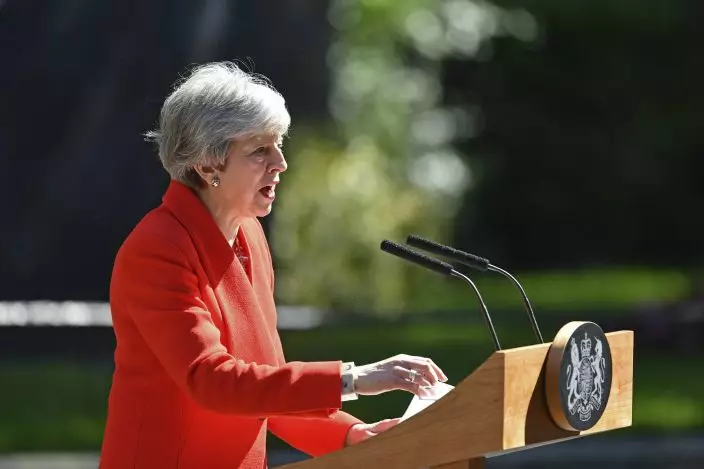
Britain's Prime Minister Theresa May makes a statement outside at 10 Downing Street in London, Friday May 24, 2019. Theresa May says she'll quit as UK Conservative leader on June 7, sparking contest for Britain's next prime minister. (Dominic LipinskiPA via AP)
JOHN MAJOR, prime minister 1990-97
Thatcher's successor, John Major, sought to mend fences with Europe, even while keeping Britain out of the single currency. His government would soon descend into civil war over the Maastricht Treaty, which bolstered integration on an array of issues including foreign policy, and led to the creation of what is now known as the European Union.
Many of the hard-line euroskeptic lawmakers who have bedeviled May's leadership came to the fore during Major's premiership, and it was clear that the party was riven by the issue of Europe, both in parliament and beyond.
Hugely divided, the Conservatives suffered one of their worst defeats in history in 1997 — after 18 years in office — in an election that saw Tony Blair lead a decidedly pro-European Labour Party into power. His ambition was to put Britain in the "heart of Europe" and he even indicated a willingness for the country to join the euro currency, which launched in 1999.
DAVID CAMERON, prime minister 2010-16
During the Blair years, the Conservatives became more and more hostile to the EU, but Cameron promised that his party would no longer continue "banging on about Europe." Nonetheless, Cameron couldn't avoid the issue when becoming prime minister in 2010, leading a coalition with the far-more pro-European Liberal Democrats.
With the U.K. Independence Party making headway with its demand for a referendum on Britain's membership, Cameron felt compelled to call a vote to bind his party together. Cameron mounted a "Remain" campaign, confident Britons would heed his call to stay a part of the European Union.
But in the referendum on June 23, 2016, 52 percent of voters chose to leave, dooming Cameron's hopes. He resigned a day later, and May won the ensuing succession battle, promising to deliver Brexit
THERESA MAY, prime minister 2016-19
May favored remaining in the EU during the referendum campaign, but embraced Brexit after voters had their say. Negotiating Britain's departure from the EU became her top priority.
She formally set the process in motion by triggering Article 50 on March 29, 2017, which gave Britain two years to negotiate a withdrawal deal. Her government eventually reached an agreement with EU leaders, but it never gained backing in Britain's Parliament, which defeated the bill three times.
Her efforts to build cross-party support in Parliament failed when talks with the opposition Labour Party collapsed, and plans for a new approach were soundly rejected by fellow Conservatives, leading to May's announcement Friday that she will step down as party leader on June 7.
Gregory Katz contributed to this story.
Follow AP's full coverage of Brexit at: https://www.apnews.com/Brexit



